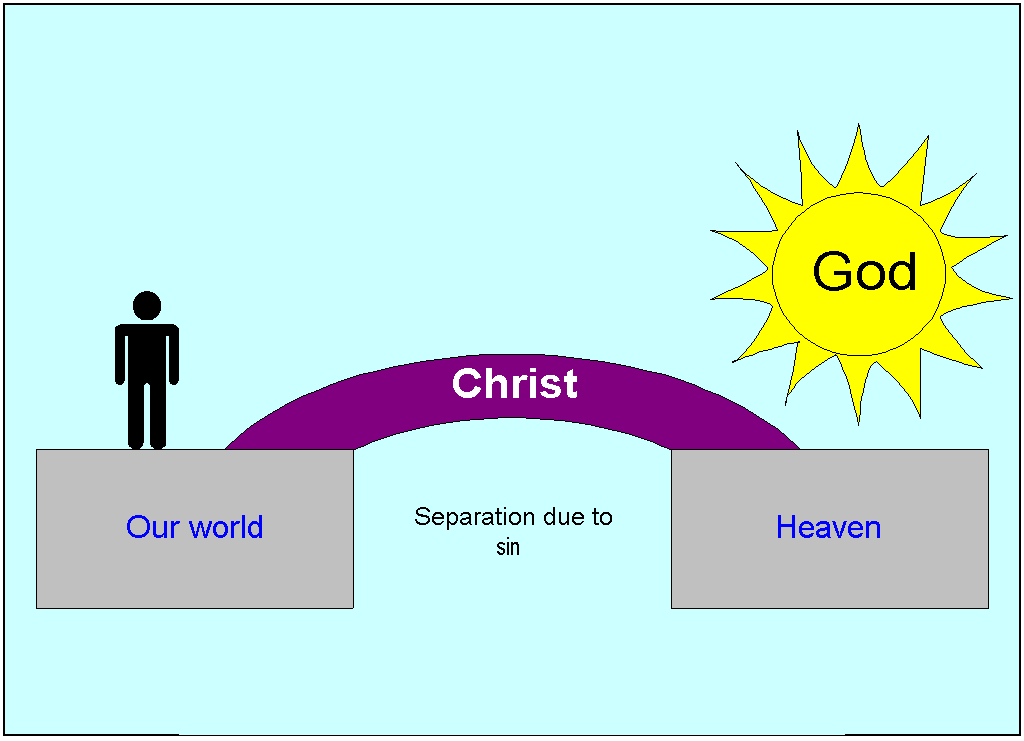Just as each of us has one body with many members, and these members do not all have the same function, so in Christ we who are many form one body, and each member belongs to all the others.
~Romans 12:4-5
 Materials Needed: Whiteboard or easel.
Materials Needed: Whiteboard or easel.
Notes to the Leader: This is a discussion-oriented study. As Christians, many people define their faith as a once-a-week worship service. Others may define their role as working on a committee or possibly an occasional trip to the homeless shelter. This would be setting the goals too low.
During this study, you will have several opportunities for open discussion while you create lists on the white board or easel. When you close, challenge the group to use the list they built as their action plan or goal for living.
The apostle Paul is most specific in his commentary about spiritual gifts and living lives as Christians. This study explores the beginning of what it really means when we say we have accepted Christ as our Savior. There are many studies available on the web for spiritual gifts. It is recommended that one of them proceed this study. We are assured that each person is given at least one gift. As a Christian it is expected that we will discover that gift(s) and use it.
Introduction
What is it about the Christian faith that should serve to keep us humble?
- Every talent we have, every skill, the very essence of who we are was given to us by our God. We should take no credit for it.
Why is it so important for a Christian to keep a proper perspective (a humble one) concerning themselves?
- God’s work and the examples we have been given by Christ Himself, all show us that no person should have an inflated attitude toward themselves. God’s work for His church is done on one’s knees.
Section One: The Christian Concept of Self
What is the main difference between the world’s teachings of a positive self image and that found in Scripture?
- The world uses man-centered criteria while Scripture teaches us to base our self-concept on one growing out of a personal relationship with God.
Read Romans 12:3 to the group.
What do you think Paul meant when he used the term “measure of faith?”
- The degree of confidence in God which has been given to each of us – one should not think of themselves as having more faith than they really have.
- The extent to which we know and understand the depth of Christian faith – one should not act like they know it all.
- The nature and quality of the gifts we have received – one must remember that their gifts are only part, not the total, of God’s gifts to the church.
- “Because we are accepted by God’s grace, we are not to think to much of ourselves. And because God in His grace has gifted each of us, we are not to think too little of ourselves.” by Walden Howard
What would the guiding principles or rules be for a Christian with regard to their gifts?
- To know ourselves. Be honest about our own capabilities.
- To accept ourselves and use the gift(s) that God has given us.
Note: Paul uses the word, charisma, meaning something coming from God. Each of us has charisma. It may manifest itself in writing sermons, building houses, sowing seeds, wood working, manipulating numbers, playing football or raising children who love God.
Whatever the gift, we must use it.
Have someone in the group read Romans 12:4-5. Be careful of which translation is used. NIV would be clear.
What does interdependence mean?
- Paul is using the body as an example of interdependence. No body part can live separated from the body. Yet when attached, each has a very specific role, some glamorous and some not so glamorous. Yet the parts can accomplish nothing of value on their own either. It is “as a body” that work is done.
What other benefits could come to the group?
Read Ephesians 4:14-16 to the group to help with the discussion.
- We gain a stability and confidence, not responding in fear to every change in our environment.
How is this different from the world’s view?
- The world is teaching independence, self-centeredness and alienation. The Christian’s form of Spiritual Worship, therefore, is to be interdependent, offering ourselves to others, and using our spiritual gifts on behalf of God’s church.
Have someone in the group read Romans:12:6-8.
What are the spiritual gifts Paul talks about?
- Prophesy
- Service
- Teaching
- Encouragement (exhortation)
- Contributing to the needs of others
- Leadership
- Mercy.
Notes: Prophecy does not necessarily mean telling the future. The Greek word for prophet is nabi meaning spokesman. Paul, however, used the word prophetes meaning spokesman for another. We use it to mean “one who speaks for God.” Note that Paul says it is to be used in proportion to the faith that person has been given.
What relevance can you find in these words for today’s Christian?
- God is not calling us to become preachers, evangelists, etc. but only to speak out for God as our faith and hearts compel us to do so.
Note: Serving comes from the Greek word diakonia meaning “wait upon, serve, relieve, assist, supply with the necessities of life, provide the means of living, minister.”
Teaching here is meant to mean the process by which the external Word is translated into personal faith and godliness. The Greek didasko suggests a relationship between the teacher and student, one of caring that knowledge and change is passed on.
- Encouraging comes from a Greek word meaning to invite, challenge, exhort, admonish, persuade, beg, beseech, entreat, implore; to animate one who is lethargic or inactive, encourage, comfort, console, cheer up. The results of encouragement must be to strengthen and renew one’s commitment.
- Contributing comes from the Greek word metadidous meaning sharing or to give a share of. The emphasis is on dividing what one has with others. To have this gift, one would feel an urge to do something for others and must give haplotes, generously, simply, liberally.
- Leadership comes from the Greek word proistemi meaning to preside, govern, superintend. In the way it was used, it means an active, involved type of leadership, not a delegation-style. The leadership is to be carried on with earnestness and diligence.
- Showing Mercy originally came from the Greek word eleeo and stood for emotion aroused by contact with someone who was suffering, a concern for the afflicted that prompts one to give help. Paul encourages them to do so cheerfully.
Do you know of any others?
Have someone in the group read 1 Corinthians 12:8-10
- It adds the message of wisdom, the message of knowledge, faith, gifts of healing, miraculous powers, distinguishing spirits, tongues (languages), interpretation of tongues.
Have someone in the group read 1 Corinthians 12:28 - It adds apostles, teachers, ability to help others and administration with the emphasis that God places people where He wants them.
Have someone in the group read Ephesians 4:11
- It adds evangelists, pastors.
Have someone in the group read 1 Peter 4:9-11
- It adds hospitality, and speaking.
Have someone in the group read 1 Corinthians 7:7
- It adds celibacy.
Section Two: What is New with the Christian Society
Have someone in the group read Romans 12:9-17. Use the white board or easel. Work through the verses, re-reading it until you have built a complete list. This is a good lesson on how to pull out of Scripture the essence and meaning of the message. You should have 12 items.
Paul gives us some rules for the new Christian society. What are they?
- Love must be completely sincere.
- We must hate that which is evil and cling to that which is good.
- We must be affectionate to one another in brotherly love. We are one family.
- We must give each other priority in honor. In other words, humility first. No one is better than the next.
- We must not be sluggish in zeal. There is no room for lethargy.
- We must keep our spirit at the boiling point. Read Revelations 3:15-16
- Seize your opportunities as they come.
- We are to rejoice in hope.
- We are to meet tribulation with triumphant fortitude.
- We are to persevere in prayer.
- We are to share with those in need.
- The Christian is to be given to hospitality.
How do you think the Christian church at large holds up to these principles today?
- This is a pure discussion question. Some may think that the Church is fine, others may think that the Church is lacking. When you reach the end of the discussion, ask the next question.
What should today’s contemporary Christian do to uphold or assure that these principles are upheld?
- Again, you should let the discussion go. Build the list on the white board or easel. This list should become the action plan for each member of your group.
Bible Truth Being Taught
We all are living sacrifices and our lives are offerings to God. It should be our goal to be part of a community of faith in which worship is expressed in the way we live together and serve each other, not just on Sunday.
Our Response
To see that worship is not just attending religious services but see it as everyday life lived in loving relationship with God and our fellow Christians in the community of faith.







